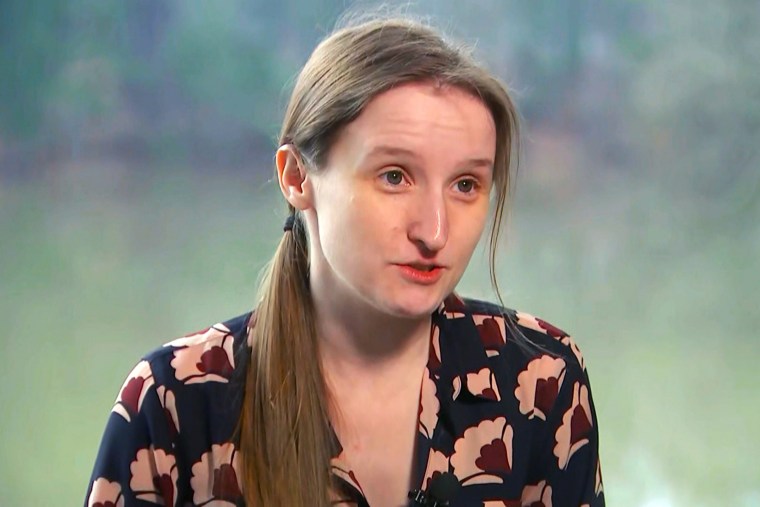ATLANTA — The Georgia grand jury that investigated possible interference in the 2020 election by Donald Trump and his allies recommended indicting over a dozen people, the jury foreperson said Tuesday — a list she said "might" include the former president.
"There are certainly names that you will recognize, yes. There are names also you might not recognize," Emily Kohrs said in an interview that aired on NBC News’ “Nightly News.”
She said the list of recommended indictments is "not a short list."
"There are definitely some names you expect," she said, declining to name any specific names in accordance with the instructions of the judge who presided over the grand jury.

"I don’t think that there are any giant plot twists coming. I don’t think there's any giant ‘that’s not the way I expected this to go at all’ moments," she said. “I would not expect you to be shocked."
Asked whether the list could include Trump, Kohrs said, "Potentially. It might."
The panel was convened in May and officially dissolved last month after it submitted its recommendations to Fulton County District Attorney Fani Willis' office.
Parts of the grand jury report made public last week revealed the panel had interviewed 75 witnesses and recommended perjury charges against "one or more witnesses" who testified before it. Fulton County Superior Court Judge Robert McBurney ordered those names be kept under wraps for time being as the DA decides whether to seek charges.
Kohrs said the panel thought one or possibly two witnesses might have misled the grand jury.
“I remember at least one and probably more than one moment where an answer made me pause, because it did not match something that either I had heard previously or something that I had seen,” she said.
A witness who did strike her as “honest” was Sen. Lindsey Graham, R-S.C., who'd fought his subpoena for testimony in the courts.
Willis wanted him questioned about a post-election phone call he made to Georgia Secretary of State Brad Raffensperger in November 2020. Raffensperger has said Graham pressed him about whether he had the power to reject certain absentee ballots, which Raffensperger interpreted as a suggestion to toss out legally cast votes.
Kohrs said Graham was "fantastic," adding: "He was personable. He was forthcoming. He was very willing to just have a conversation."
She said she was also impressed by Trump lawyer Rudy Giuliani, who'd also challenged his subpoena. "He may have fought it tooth and nail, but when he got to the door, it was like he respected the fact that the battle had been decided," Kohrs said.
While he did at some points claim attorney-client privilege and assert his Fifth Amendment right against self-incrimination, "he would think about it before he asserted privilege," she said.
Former White House chief of staff Mark Meadows, meanwhile, "shared very little" during his roughly 90 minutes of testimony, she said.
Another witness whom Kohrs did not identify was offered immunity on the witness stand after not having been responsive to questions, she said. In all, about a dozen witnesses had some form of immunity, Kohrs said, and they were not generally well-known names.
The special purpose grand jury is different from a typical grand jury — it has the ability to issue subpoenas, and rather than issue indictments, it submits its findings to the district attorney, who then decides whether to present evidence to another grand jury for criminal charges.
Kohrs said one of the first pieces of evidence the panel reviewed was the widely reported audio of the Jan. 2, 2021, phone call in which Trump urged Raffensperger, the state’s top election official, to overturn Joe Biden’s win. “I just want to find 11,780 votes, which is one more than we have. Because we won the state,” Trump said on the call.
Kohrs said that she was busy with work at the time news of the phone call broke and that the first time she heard it was when she was sitting on the grand jury. She said it was one of the first pieces of evidence the panel heard.
"It's an interesting piece of the puzzle, a strange piece of the puzzle," Kohrs said.
Trump, who has defended the call as "perfect," called Willis's investigation a "witch hunt.
Kohrs said she did not vote in either the 2016 or 2020 elections but volunteered to be foreperson because "this is really cool, and because this is important."
"I think we discovered a lot about a very, very complex situation," she said. "I think we found a lot of answers."
Blayne Alexander reported from Atlanta and Dareh Gregorian from New York.

